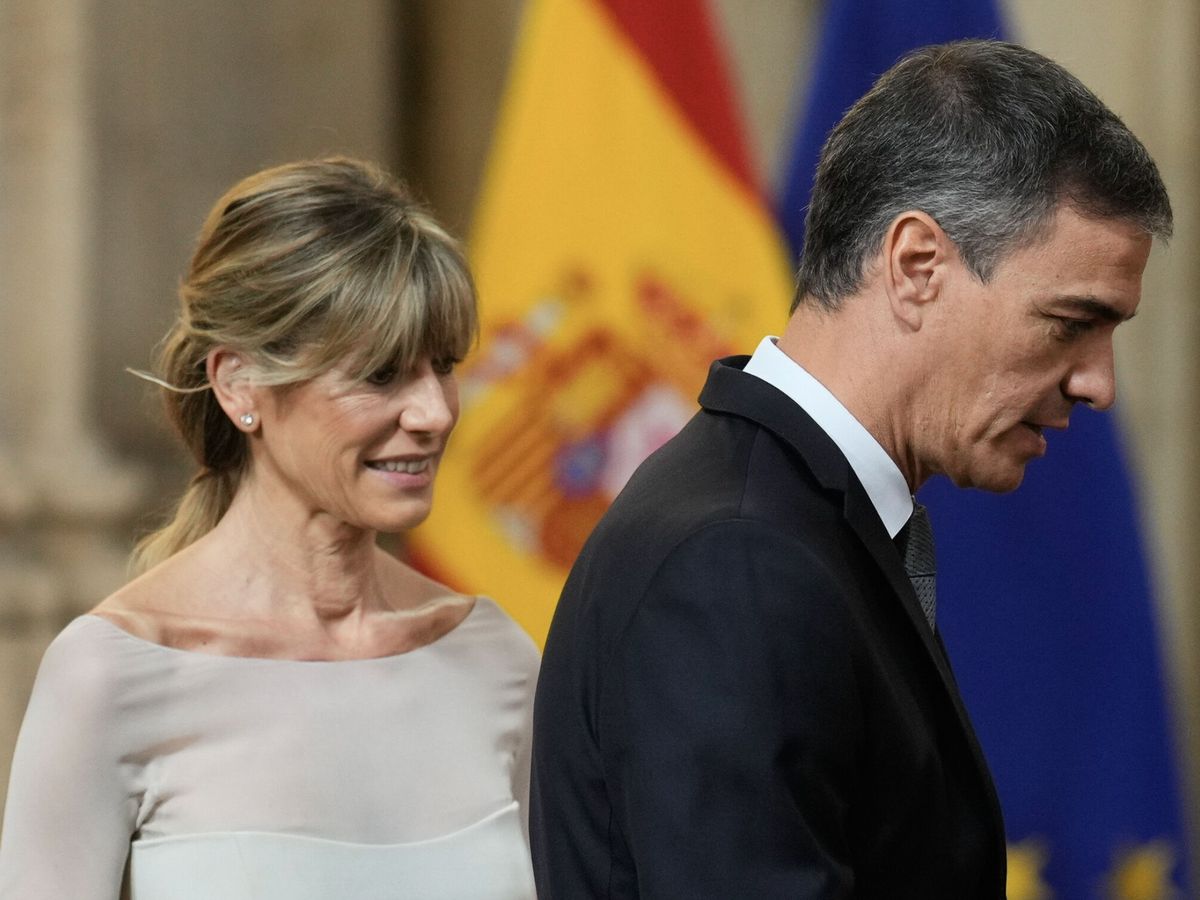In Spain, Pedro Sánchez, the socialist president, is surrounded by corruption. Political, economic and moral corruption in his family, in his party and in his government.
On the one hand, his wife, Begoña, is being investigated by the 41st Examining Court of Madrid for possible crimes of influence peddling and corruption in business, in order to determine whether her activity in a false “University Chair” could have benefited businessmen and companies in obtaining administrative contracts, aid or public subsidies granted by the ministries of her husband’s government.
On the other hand, her brother, David, is also under investigation for similar crimes – and some more – in a court in Badajoz.
In relation to the socialist government in Spain, there are also countless judicial proceedings for corruption, such as those related to the overpriced purchase and sale of masks and sanitary material during the months of coercive confinement agreed by the government in 2020; or possible corruption schemes in the signing of various administrative contracts, known as the “Koldo case”.
Corruption never comes alone. Where there is economic corruption, there is political and moral corruption. Sánchez has assaulted in these five years of government – with the complicity, silence or the sometimes necessary cooperation of Núñez Feijoo’s Partido Popular – practically all the democratic institutions of control, supervision and guarantee.
 Spain is no longer a state governed by the rule of law in the strict and modern sense of the term. In Spain, the institutions of citizen control, supervision and guarantee against the intrusions of power into the lives of Spaniards and against government abuse, lack independence, autonomy and freedom of operation.
Spain is no longer a state governed by the rule of law in the strict and modern sense of the term. In Spain, the institutions of citizen control, supervision and guarantee against the intrusions of power into the lives of Spaniards and against government abuse, lack independence, autonomy and freedom of operation.
And not only because the Constitution and the laws – never perfect – have sometimes allowed it; but also because Sánchez has reinterpreted norms in his favour, forced wills, intimidated the weak opposition of the Popular Party and bought off the media with subsidies and aid that come out of the pockets of the Spanish people.
Thus, the Constitutional Court, the Court of Auditors, the Board of Directors of Public Radio and Television or the General Council of the Judiciary are already under the absolute control of a socialist party that is rapidly moving towards the identification of party, government and state.
In most cases, the Popular Party has participated in this political assault on institutions of guarantee; ensuring the power to “place” judges, magistrates and representatives who assure them a “small part” of the cake that is shared out, and devoured by Sánchez. Institutions that should be made up of civil servants of integrity, jurists of recognised and public competence and prestige, are now occupied by party mercenaries, or jurists of competence but lacking in personal independence in the face of party pressures.
It is as evil to assault power and democracy as it is to participate in the assault from the opposition. Well, actually, it could be said that the opposition is worse, because Sánchez, at least, does not cheat, does not swindle, does not want to appear different from what he is. On the other hand, the Popular Party seeks to appear as the opposition to Sánchez’s government while at the same time giving in and agreeing with him on everything, as long as the Popular Party has some cake left to put in its mouth. And its voters are fooled.
The Popular Party in Spain deeply desires to pact with Sánchez and consolidate a new model of bipartisanship – like the one that has existed from 1978 to 2008. But they remain unaware that the world has changed, that the devil wears Prada, and that evil has never been fought with lesser evil but with an abundance of good.



 Subscribe
Subscribe